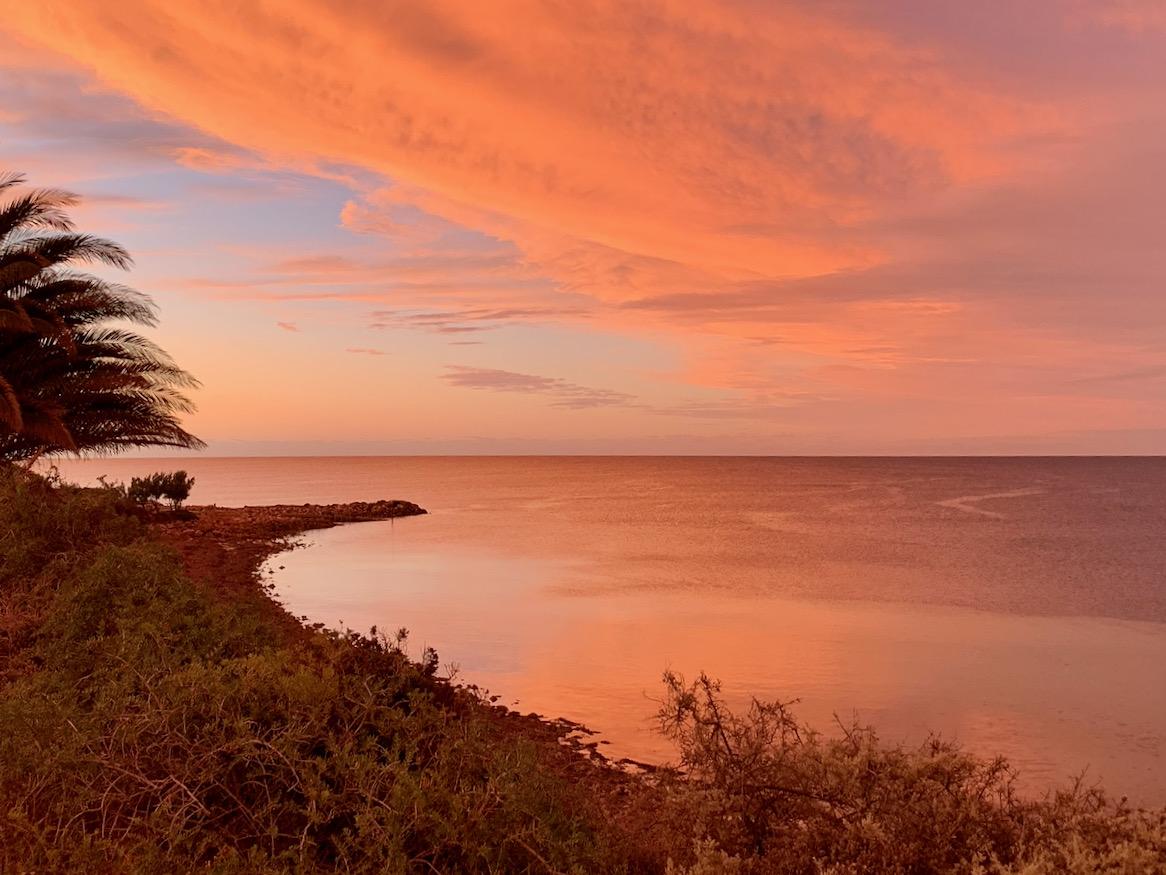Sustainable marine and coastal futures

A project team supported by the Environment Institute at the University of Adelaide.
The Blue Economy challenge
Australian consumers are increasingly motivated to buy quality seafood of known provenance, spend time in and around clean seas and know that the coasts they live beside are governed by sustainable policies. We are seeing national demand for sustainable coastal planning, reduced carbon footprints, improved water quality, aquaculture and restoration of ecosystems and wildlife, which can be addressed by drawing from decades of experience of our researchers.

Responding to the challenge
Sustainable marine and coastal futures is a multidisciplinary team at The University of Adelaide who provide knowledge and solutions to sustain economic and population growth with improved access to quality coasts and their food production.
Our researchers work across fisheries and seafood quality, water quality, ocean warming and acidification, restoration of marine habitats, nature-based solutions to climate change (including blue carbon), conservation technologies, biological forensics, and education and training.
Partnering with sustainable marine and coastal futures
-
How can our team help you?
By harnessing the power of world-leading research to conserve and restore marine and coastal ecosystems and enhance their resilience to environmental change, our university researchers can assist in delivering coastal adaptation strategies, and lead the challenges of blue economies wishing to grow along-side social expectations of quality of life, equity and access for all.
We have the skill sets to provide:
- Marine and coastal monitoring of water quality, coastal habitat condition and change, and biodiversity monitoring.
- Identify how seafood quality might improve or decline as oceans warm and acidify, support the development of a climate-smart aquaculture industry and inform the design of climate-friendly aquaculture operations.
- Design and restore multi-species seascapes to improve their economic and social benefits.
- Nature-based solutions to climate change through coastal restoration for blue carbon and biodiversity benefits.
- Assess the environmental, economic and social benefits of improving water quality and natural and artificial coastal defences to rising sea levels.
- Educate the public on the value of adopting new management and encourage their participation through citizen science, school curriculum and continuous under-sea video footage.
- Co-design projects that innovate solutions to problems or economic and social opportunities for coastal people and industry.
-
Sustainable marine and coastal futures areas of expertise
Our team can help solve complex problems and create market opportunities with actionable solutions to:
- Identify the quality of seafood and its provenance whilst assessing its future as a sustainable and reliable source of quality food in a changing climate.
- Protect, manage, and restore habitats (e.g. oyster reefs, seagrass, mangroves, rocky reefs, salt marsh) across large areas and show the benefits to people, food production, climate change mitigation and recovery of wildlife populations.
- Deploy cost-effective technologies that monitor coastal and marine ecosystem condition, detect the presence of pest or invasive species and protect native species.
- Understand the drivers of public acceptance and promote public participation in solutions.
- Visualise and communicate sustainable marine and coastal futures through live video, graphic, written and conceptual models.
- Provide school content for marine conservation and map onto the curriculum at state and national scales.
“Our coast is intimately linked to our national economy, industry, arts, social life style and cultural identity, with more than 85 per cent of Australians living within 50 kilometres of the sea”.Australia State of the Environment Report (2019)
Sustainable marine and coastal future areas of expertise
-
Marine monitoring
Areas of expertise
- Smart technologies and remote sensing
- eDNA to detect long term ecosystem dynamics and pest or unwanted species
- Water quality, pollution, micro-plastics, waste-discharge, pharmaceuticals, water recycling
- Marine cumulative impact assessment
Researchers
Dr Ken Clarke
Professor Sean Connell
Professor Bronwyn Gillanders
Dr Alice Jones
Dr Camille Mellin
Professor Ivan Nagelkerken
Dr Ramesh Raja Segaran
Dr Patrick Reis Santos
Professor Michelle Waycott -
Seafood quality and provenance
Areas of expertise
- Omega-3 and future changes in nutritional profiles
- Fisheries and coastal nursery habitats
- Species range shifts under global change
- Traceability and provenance
- Climate resilience and emissions reduction in marine aquaculture
Researchers
Professor Bronwyn Gillanders
Dr Alice Jones
Dr Camille Mellin
Professor Ivan Nagelkerken
Dr Patrick Reis Santos
Professor Michelle Waycott -
Restoration and blue carbon
Areas of expertise
- Seascape and multi-species design to optimise outcomes
- Boosting restoration success cost effectively
- Nature-based solutions to climate change: restoration of mangroves, seagrasses & saltmarshes for blue carbon sequestration and fisheries production
- Access to carbon and biodiversity offsetting and crediting markets to fund coastal restoration
- Conservation technologies
Researchers
Professor Sean Connell
Professor Bronwyn Gillanders
Dr Alice Jones
Dr Dominic Mcafee
Professor Ivan Nagelkerken
Dr Ramesh Raja Segaran -
Socio-cultural management
Areas of expertise
- Show the social value of the public embracing a change in management or policy
- Imbed content in high school curriculum
Researchers
Dr Georgina Drew
Professor Melissa Nursey-Bray
Dr Rebecca Vivian -
Coastal defence and planning
-
Traditional owners
Areas of expertise
- Engage communities to be part of environmental decision making
Researcher
Professor Melissa Nursey-Bray -
Maritime law
Areas of expertise
- Mining and petroleum law within environmental regulation
Researcher
Dr Alexandra Wawryk -
Marine Protected Areas
Areas of expertise
- Monitoring for effectiveness
- Connectivity
Researchers
Professor Bronwyn Gillanders
Dr Alice Jones
Professor Ivan Nagelkerken

Contact us
Would you like to discuss working with the Sustainable Marine and Coastal Futures team?
Professor Sean Connell
Theme Lead – Marine and Freshwater Ecosystems
School of Biological Sciences
The University of Adelaide SA 5005 Australia
E: sean.connell@adelaide.edu.au
T: +61 8 8313 5513
